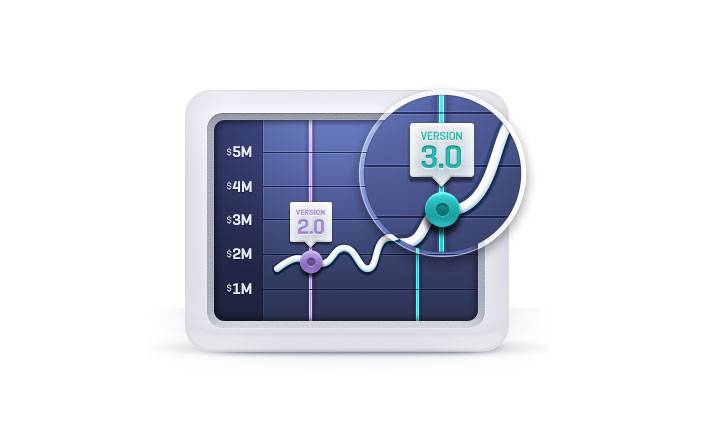/s
There are many different ways to monitor and analyse the success of a marketing campaign, but which metrics matter most?
Whether you are running a PPC campaign, SEO or content marketing campaign or even a Social Media campaign, here are the 4 marketing metrics that matter most:
1. Quality Score
The biggest marker of success on a PPC platform, like Google’s Adwords is a Quality Score.
A Quality Score is the way in which Google rates the quality and relevance of your keywords and pay per click (PPC) ads.
This Quality Score or QS is based on surpassing the expected click through rate (CTR) for a given ad position. Through this, Google is able to determine how people are responding to your ad and whether or not it is resonating with customers search needs.
Google also uses your QS to determine your ad position, impression share and your cost per click (CPC).
Essentially, your QS determines the quantity and cost of your conversions, which is why it is such an important metric to monitor and observe.
It is also worth noting that the lower your Quality score, the higher your CPC rate.
To check your Quality Score on Adwords-
1. Click the campaign tab
2. Select the Keywords tab
3. Click the white speech bubble next to any keyword’s status to see details about that particular keyword’s quality score.
You want to aim for a QS score of 5 and above, anything lower than 5 and you may want to re-work your campaign strategy.
2. Social Engagement
Most social networks aim to get popular content ranked highest in people’s news feeds or activity streams.
If you have ever done any Facebook marketing, you would also be aware that the social media’s algorithm heavily favours post engagement rates such as likes, shares and comments.
All interactions on social media act as an endorsement of some kind that allows companies like Facebook, to know whether you are increasing user activity or decreasing it.
Therefore, the more engagement you get on social media, the more likely people are to see and view your posts.
Like Google’s Adwords, Twitter also offers a discounted CPC rate for tweets that generate higher engagement.
There are some easy ways to boost engagement on social media such as using images instead of text, posting during high traffic days and times, asking questions and running competitions.
The strategy you choose will definitely depend on your businesses needs however, no matter the social platform pay attention to your likes, follows, comments and shares as this is the most valuable metric.
3. Content SEO and Engagement
We mentioned Social Media engagement, but what about content engagement? This is also a crucial metric but instead of looking at likes, comments and shares, you want to instead focus on bounce rate and average time on the site.
To put it into perspective, according to Google the average bounce rates are as follows:
- 40-60% for content websites
- 30-50% for lead generation sites
- 70-98% for blogs
- 20-40% for retail sites
- 10-30% for service sites
- 70-90% for landing pages
From these averages, you can work out where your company stands in terms of engagement on your actual website.
You can also look at comments and social sharing metrics to see if you are engaging your readers enough for them to take action.
Google’s ranking algorithm also heavily favours content that is deemed “engaging” and the more you work to get your content relevant, the more traffic and sales you will have.
It is interesting to note that the first three most important metrics are all about consumer response. This just goes to show that marketing is not about tricking your users with annoying tactics and strategies. Rather, it is about engaging your customers and giving them more of what they are looking for.
It really comes down to building trust. Once you earn the trust and respect of your audience, they are far more likely to feel comfortable purchasing from you and they are more likely to go after your services and products.
4. Revenue
It seems obvious, but the only real way to determine whether your marketing strategy is a success or flop is whether or not you are making money from it.
Revenue may not always be the goal, however in the end it is the most important metric to observe. Without money, there is no product, no sales and nothing to market!
If you are not seeing results from your marketing campaign, it is definitely time to take a step back and see where you need to tweak and adjust things.
Remember, what works for some other websites may not work for yours. In fact, most of the best marketing strategies were founded through trial and error. While it’s ok to not have money on your mind all the time, it is definitely something that you need to consider.
Schedule a Strategy Session with one of growth experts to see how we can help you unlock revenue and hit your growth goals.

Hey!
It looks like you're browsing in . Would you like to switch over to the website?